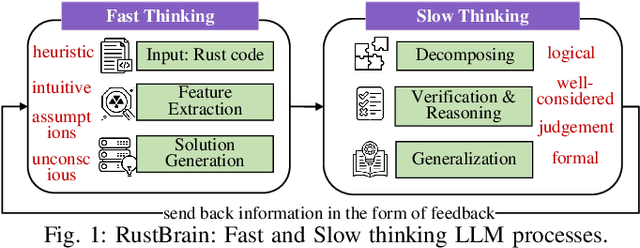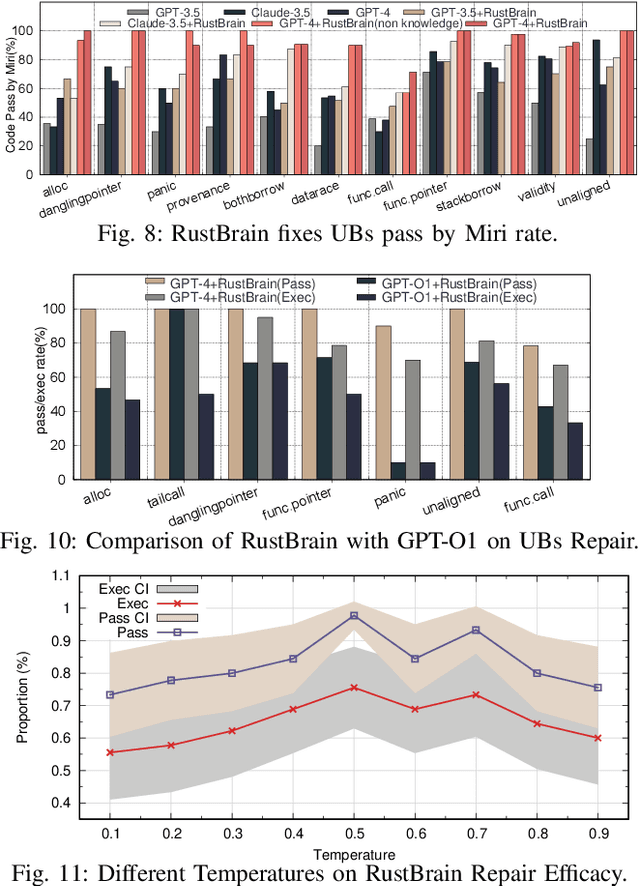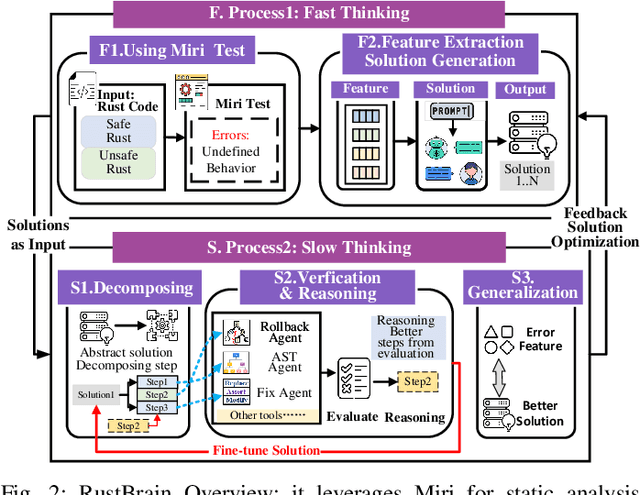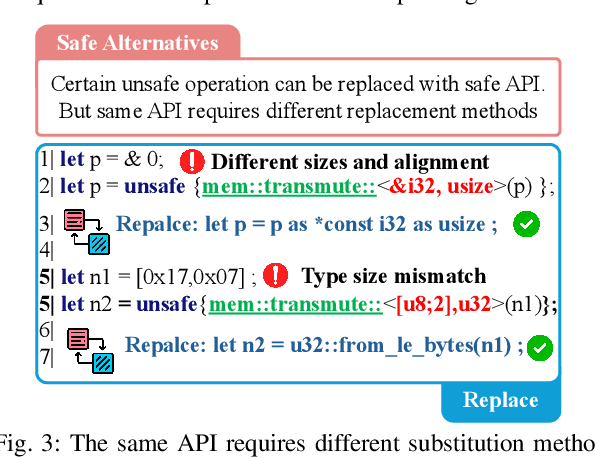Pan Dong
Unlocking a New Rust Programming Experience: Fast and Slow Thinking with LLMs to Conquer Undefined Behaviors
Mar 04, 2025



Abstract:To provide flexibility and low-level interaction capabilities, the unsafe tag in Rust is essential in many projects, but undermines memory safety and introduces Undefined Behaviors (UBs) that reduce safety. Eliminating these UBs requires a deep understanding of Rust's safety rules and strong typing. Traditional methods require depth analysis of code, which is laborious and depends on knowledge design. The powerful semantic understanding capabilities of LLM offer new opportunities to solve this problem. Although existing large model debugging frameworks excel in semantic tasks, limited by fixed processes and lack adaptive and dynamic adjustment capabilities. Inspired by the dual process theory of decision-making (Fast and Slow Thinking), we present a LLM-based framework called RustBrain that automatically and flexibly minimizes UBs in Rust projects. Fast thinking extracts features to generate solutions, while slow thinking decomposes, verifies, and generalizes them abstractly. To apply verification and generalization results to solution generation, enabling dynamic adjustments and precise outputs, RustBrain integrates two thinking through a feedback mechanism. Experimental results on Miri dataset show a 94.3% pass rate and 80.4% execution rate, improving flexibility and Rust projects safety.
Mixture of Experts for Node Classification
Nov 30, 2024Abstract:Nodes in the real-world graphs exhibit diverse patterns in numerous aspects, such as degree and homophily. However, most existent node predictors fail to capture a wide range of node patterns or to make predictions based on distinct node patterns, resulting in unsatisfactory classification performance. In this paper, we reveal that different node predictors are good at handling nodes with specific patterns and only apply one node predictor uniformly could lead to suboptimal result. To mitigate this gap, we propose a mixture of experts framework, MoE-NP, for node classification. Specifically, MoE-NP combines a mixture of node predictors and strategically selects models based on node patterns. Experimental results from a range of real-world datasets demonstrate significant performance improvements from MoE-NP.
 Add to Chrome
Add to Chrome Add to Firefox
Add to Firefox Add to Edge
Add to Edge